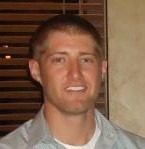Strategies to Increase Data Science and Artificial Intelligence Curriculum and Practical Skills in Medical Physics Graduate and Residency Programs
Presentations
PO-GePV-E-8 (Sunday, 7/10/2022) [Eastern Time (GMT-4)]
ePoster Forums
Purpose: To discuss the importance, strategy, and tools for including data science (DS) and artificial intelligence (AI) training in graduate and postgraduate medical physics programs.
Methods: The fields of DS and AI are growing rapidly and have massive implications for the future practice of medicine. Medical physicists have a unique position in healthcare and have made significant contributions to technological innovations. Physicists' ability to effectively communicate in medicine, utilize their technical skills to create clinical software, and conduct research positions them to contribute to the integration of AI into clinical practice but well defined AI curriculum needs to be defined. The current status of DS and AI education was surveyed by exploring published journal articles, graduate and residency program websites, online education platforms, coding repositories, and discussions with current graduate students and residents in our CAMPEP accredited programs.
Results: A graduate medical physics course in DS and AI was generated and proposed to our education committee. Resources were identified for efficiently generating: short practical instructional videos, coding tutorials, clinically related coding assignments, and larger projects that can enrich the student's and the department's clinical coding resources. Additional content includes short-form practical clinical coding tutorials that can be provided for medical physics residents interested in developing their clinical coding and data analysis skills.
Conclusion: We believe that integrating DS and AI into the curriculum of graduate and residency training programs in medical physics will be vital for the success of our trainees and has the potential to train the next generation of medical physicists to engage the enormous challenge of processing, analyzing and creating applicable models for clinical practice. It is crucial to decrease the barrier of entry to these skills and increase medical physicists' reach and effectiveness in the medical setting.
Keywords
Computer Vision, Computer Software
Taxonomy
Contact Email



